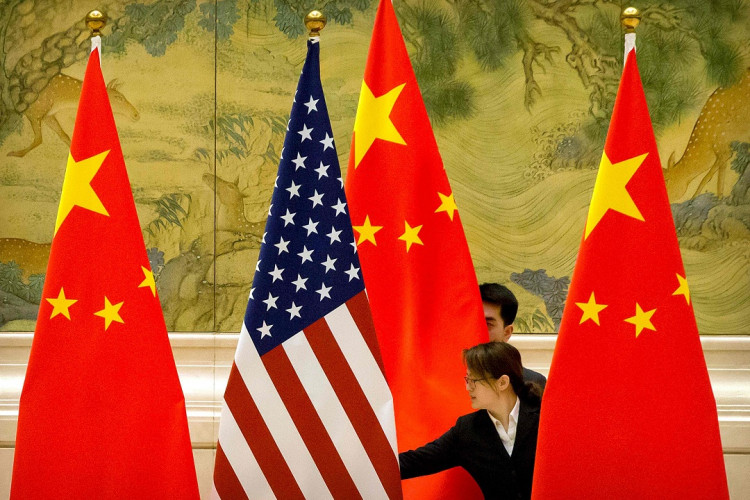Tensions between Washington and Beijing have reignited following mutual accusations of violating a fragile trade truce struck last month in Geneva. On Tuesday, China's Foreign Ministry and Commerce Ministry accused the United States of breaching the agreement with a trio of new restrictions, escalating fears that the detente may be unraveling before any durable framework could take hold.
Foreign Ministry spokesman Lin Jian said the United States had "severely violated the common understandings reached in Geneva" by imposing controls on AI chip exports, halting the sale of chip design software to Chinese firms, and revoking student visas tied to sensitive academic research areas. "China firmly opposed this and made strong protests," Lin said during a press briefing. "Let me stress once again that this pressuring and coercion is not the right way to engage with China."
The rebuke comes days after President Donald Trump posted on Truth Social that "China... HAS TOTALLY VIOLATED ITS AGREEMENT WITH US," adding, "So much for being Mr. NICE GUY!" The post followed remarks by Treasury Secretary Scott Bessent, who said negotiations had become "a bit stalled" and pointed to delays in China's rare earth mineral shipments, which are critical for U.S. defense and tech sectors.
At the center of the dispute is the May Geneva agreement, in which both countries pledged to slash import tariffs by a combined 115 percentage points over a 90-day period. The move was touted at the time as a significant reset after years of escalating trade war rhetoric. But trust has proven elusive, with both sides now accusing the other of backtracking.
The U.S. has "seriously undermined" the agreement, a Chinese Commerce Ministry spokesperson said in comments published by state media. "If the U.S. insists on its own way and continues to damage China's interests, China will continue to take resolute and forceful measures to safeguard its legitimate rights and interests."
On Monday, White House press secretary Karoline Leavitt responded, saying, "At the direction of President Trump, the Administration is aggressively moving to onshore critical supply chains, including the production of magnets, in the United States." She added that Trump would speak "very soon" with Chinese President Xi Jinping.
Though President Trump did not identify specific violations, administration officials said Beijing has delayed key rare earth exports that were part of the Geneva deal. "What China is doing is they are holding back products that are essential for the industrial supply chains of India, of Europe, and that is not what a reliable partner does," Bessent said during an interview on CBS News' Face the Nation.
When asked whether the situation could be resolved diplomatically, Bessent expressed optimism: "I'm confident that the two sides' issues will be ironed out once Trump and Xi have spoken." However, he noted delays could be "a glitch in the Chinese system, maybe it's intentional," adding, "We'll see after the president speaks with [Xi]."






